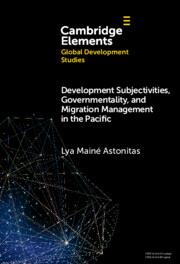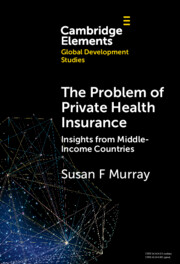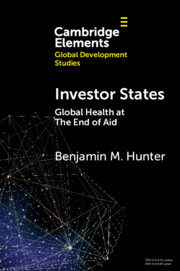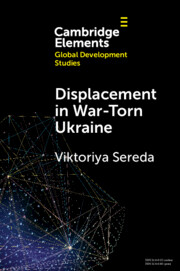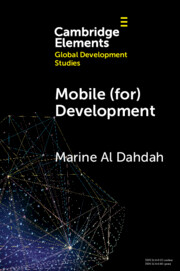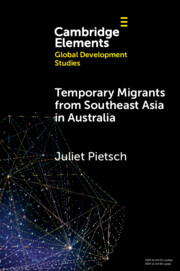The Cambridge Elements on Global Development Studies publishes ground-breaking, novel works that move beyond existing theories and methodologies of development in order to consider social change in real times and real spaces.
The series is essentially inter-disciplinary and multi-disciplinary in nature as reflected in the theories, methodologies, and empirical studies it employs by examining processes of socio-political, environmental, economic, and cultural change. Geographically speaking, the series is global in scope and ambition, welcoming studies on developing societies, emerging economies, and ex-socialist countries in Asia, the Americas, Africa, Europe, and the Pacific.
The series appeals to academics, policy-makers and pracademics through: (1) cutting-edge and comprehensive scientific reviews; (2) thought-provoking essays setting future directions for research, theory, and methodology; and (3) theoretically rich and empirically grounded studies.
Elements in this series
-
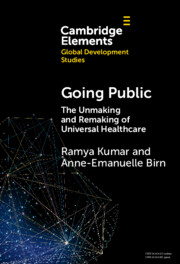
- Element
Going Public
-
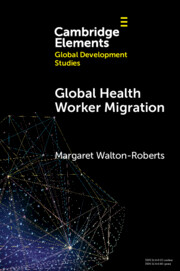
- Element
Global Health Worker Migration
Advisory board
- Arun Agrawal, University of Michigan, USA
- Jun Borras, International Institute of Social Studies, The Netherlands
- Daniel Bromley, University of Wisconsin-Madison, USA
- Jane Carruthers, University of South Africa, South Africa
- You-tien Hsing, University of California, Berkeley, USA
- Tamara Jacka, Australian National University, Australia
Contact the editors
If you would like more information, or are interested in writing an Element, contact the editors Peter Ho (Zhejiang University) and Servaas Storm (TU Delft) at GlobalDevStudies@cambridge.org.
Elements proposal
Proposals for Elements, need to include a prospectus, comprising at least:
Ø The credentials of the author(s).
Ø Description of rationale, scope, selling points, and contribution to the literature.
Ø A description of intended readership/users.
Ø A breakdown of the content (i.e. chapter descriptions/abstracts, table of contents).
Ø The work’s digital features (e.g. embedded special graphics, video/audio recordings, MOOCs).
Ø An explanation of how it relates to other recent publications.
Ø Details of the length, number / type of illustrations, and completion date.



